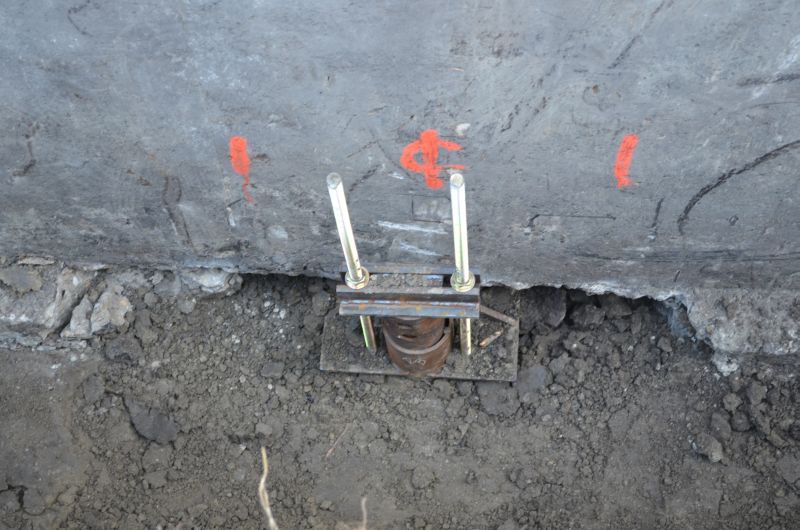How Foundation Repair Affects Your Home Insurance Premium
Homeowners who face structural issues need reliable expertise to protect their insurance coverage. Since 1989, Abarent Construction has provided professional foundation repair services in Edmonton that help property owners maintain their insurance standing. As an APEGA permit holder with extensive experience in structural engineering and foundation repairs, Abarent Construction helps homeowners address foundation problems before they affect insurance premiums.
Key Takeaways About Foundation Repair Effects on Home Insurance Premiums
- Structural problems in residential foundations directly increase insurance premiums due to higher risk assessment.
- Insurance companies require professional documentation of all foundation repairs to maintain coverage.
- Basement waterproofing systems demonstrate proactive maintenance to insurance providers.
- Engineering assessment reports influence how insurance companies evaluate structural risks.
- Regular structural monitoring through digital systems helps maintain favorable insurance terms.
- Early detection and repair of foundation issues prevents insurance coverage denials.
- Professional foundation repair certification improves insurance risk assessment outcomes.
Structural Problems Increase Coverage Costs for Property Owners
Insurance companies raise premiums when buildings show signs of structural weakness. Property coverage rates typically increase by 15-30% when structural engineers identify foundation issues during inspections. Insurance providers may completely deny coverage for homes with severe structural damage until certified repairs address the building stability concerns. Professional structural damage assessments help determine exact premium increases.
Building Inspectors Evaluate Load-Bearing Wall Conditions
Professional engineers use precise measurement tools to assess load-bearing wall stability. Certified building inspections should occur annually to monitor structural integrity changes. The inspection documentation requirements include detailed reports with photos, measurements, and professional engineer certifications that validate structural safety.
Critical Factors That Impact Foundation-Related Insurance Claims
- Insurance providers require detailed structural engineer assessments
- Documentation must show the full scope of foundation damage
- Repair timelines affect claim approval status
- Professional certification validates repair quality
- Regular maintenance records support claims
Early Foundation Repairs Protect Your Insurance Status
Timely foundation repair during renovations maintains insurance coverage eligibility. Insurance claim procedures require homeowners to report structural issues within 30 days of discovery. DIY repairs typically void coverage unless certified professionals verify the work quality. Insurance policy compliance requires completion of structural repairs within timeframes specified by providers.
Proactive Maintenance Extends Structural Longevity
Professional maintenance services prevent major structural problems through regular monitoring. Foundation maintenance improves structural efficiency when certified professionals perform quarterly inspections. Foundation monitoring systems track subtle changes that require immediate professional attention.
Basement Waterproofing Demonstrates Responsible Ownership
Professional waterproofing methods protect foundations and can reduce insurance costs by up to 10%. Insurance providers prefer exterior membrane waterproofing systems with professional installation certification. Waterproofing certifications typically remain valid for 10 years when installers follow moisture prevention system specifications.
How Do Weather Patterns Impact Structural Integrity?
Extreme temperature fluctuations and heavy rainfall create the highest risks for basement stability. Weather impact assessments guide seasonal maintenance requirements for foundation protection. Climate monitoring systems track moisture levels to prevent weather-related structural damage.
Insurance Adjusters Consider Foundation Assessment Reports
Professional foundation assessment reports guide repair decisions that affect insurance rates. Licensed structural engineers must complete insurance-approved assessments using standardized evaluation protocols. Assessment findings that show proper structural repair and maintenance often result in premium reductions.
What Makes Engineering Reports Insurance Compliant?
Insurance providers accept reports from engineers with current professional certifications in structural analysis. Structural report standards require detailed documentation of testing methodologies and findings. Engineering certification requirements ensure report validation through approved structural analysis protocols.
Regular Structural Monitoring Influences Insurance Terms
Professional monitoring systems track foundation conditions that affect insurance rates. Digital monitoring solutions must provide monthly reports to insurance providers. Smart sensor technology can reduce premiums by demonstrating continuous structural assessment compliance.
Digital Sensors Track Building Settlement Patterns
Settlement pattern analysis helps identify early warning signs of structural problems. Digital monitoring accuracy reaches 99% with proper sensor placement optimization. Automated measurement systems provide continuous data collection through strategically positioned sensors.
Abarent Construction offers comprehensive foundation repair and monitoring services that help maintain favorable insurance terms. The company’s foundation repair expertise in Vancouver includes professional assessments, certified repairs, and ongoing monitoring that satisfy insurance requirements.
